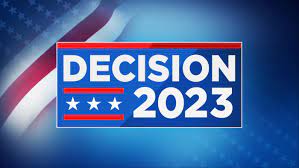As the agencies that have been delegated the power from city and county governments to give tax breaks to companies and real estate developers, there are questions that every mayoral candidate should answer. For that reason, I’m updating my column in The Commercial Appeal from February 2, 2021. The agencies granting roughly $80 million in tax breaks a year to large corporations and real estate developers still lack the level of accountability that taxpayers deserve and that the Memphis mayor should require.
Here’s the column, which has been edited in light of the Memphis mayor’s race:
Needed: PILOT Programs With Accountability And Better Economic Results
There’s little in our over reliance on PILOTs, Payment in lieu of taxes, in the past 20 years that suggests they are creating a stronger, more balanced, and more competitive economy.
By Tom Jones
It is an undeniable fact that despite more tax breaks being handed out in Memphis, key indicators for our economy have not significantly improved and we are now trailing cities that we used to lead in economic growth.
We regularly overlook this by high fiving any announcement about a new project, ignoring that Memphis gives out three times more PILOTs, Payment in lieu of taxes, than the other major urban areas in Tennessee combined, according to the Tennessee comptroller, while wage growth and employment growth lag all of the others.
The next Memphis mayor should sign on to these steps toward transparency:
+ The next mayor should require quarterly data-driven reports about each PILOT approved by the nine agencies approving them: amount of the tax freeze, the length of term, the cumulative amount of taxes waived, and the per job cost. These should be posted on a public website.
+ The next mayor should require the median rather than the average salary for new jobs because the average skews the number because of management salaries, and also, the breakdown of jobs by category and salaries for each category, and how and if the PILOT is closing the racial income gap, a $22 billion opportunity for the Memphis region.
+ The next mayor should know how much school funding is lost with each PILOT. Current PILOTs waive roughly $10 million a year that would otherwise go to schools. Well-funded education contributes directly to a stronger economy.
+ The next mayor should know what percentage of the total project cost is represented by the PILOT amount, and if that percentage exceeds a specified amount like 10%, City Council and Board of Commissioners have to approve it. Today, EDGE PILOTs for apartments amount to about 25% of the total project costs. The next mayor should explore whether taxpayers should have an equity position in a project if their taxes being waived reaches a specific threshold.
+ The next mayor should require that his/her approval is needed if a project is to receive more than one incentive. There was a time when a prospect was given a menu of incentives—PILOT, tax increment financing, tourism development zone or direct funding from city and county—and one of them was selected. Now, the answer is often “all the above.” If more than one is chosen, legislative bodies should have a voice in the decision.
+ The next mayor should require a yearly report from each PILOT approving agency that shows their targets and priorities and a report card on whether they met them. They should require an independent analysis about why strategic economic indicators here flounder when compared to peer cities despite the large amounts of taxes being waived by PILOT programs.
+ The next mayor should require all PILOT-approving agencies and the Greater Memphis Chamber to produce a shared economic plan built on quality and competitive assets rather than selling our community at a discount. A report card would show the public if they are succeeding.
+ The next mayor should examine the current matrix for PILOTs to determine if you agree with the weighting of the points which are in turn converted into the length of tax breaks. The next mayor should survey other urban cities in Tennessee and peer cities to see how they are able to issue significantly fewer PILOTs than Memphis. Also, the matrix should add all of Memphis advantages such as cheap water and electricity (rates lower than residents) and a lower cost of living and doing business here and include them in its calculations of savings for a company coming to Memphis.
+ The next mayor should consider setting a total amount of taxes that the various boards can approve each year and to approve more, the legislative bodies would have to receive approval.
+ The next mayor should commission an independent study to determine if the PILOT process is strategic and if is being executed within a shared economic development plan with milestones, objectives, and results. The mayor candidates should answer whether they support this and if they plan to send their own economic priorities to EDGE and other tax-forgiving boards?
+ Memphis Sand Aquifer provides some of the purest, yet cheapest, water in the country. The next mayor should support including in the PILOT tax breaks matrix the fact that applicants benefit economically from our pure water for which they pay less than residential users (the same as electricity).
After all, every dollar given in an excessive PILOT is a dollar that can’t be spent on workforce development, education, quality of life, public transit, and other drivers of a successful economy.
**
Tom Jones is principal at Smart City Consulting in Memphis and author of the Smart City Memphis blog.
https://amp.commercialappeal.com/amp/4351096001




